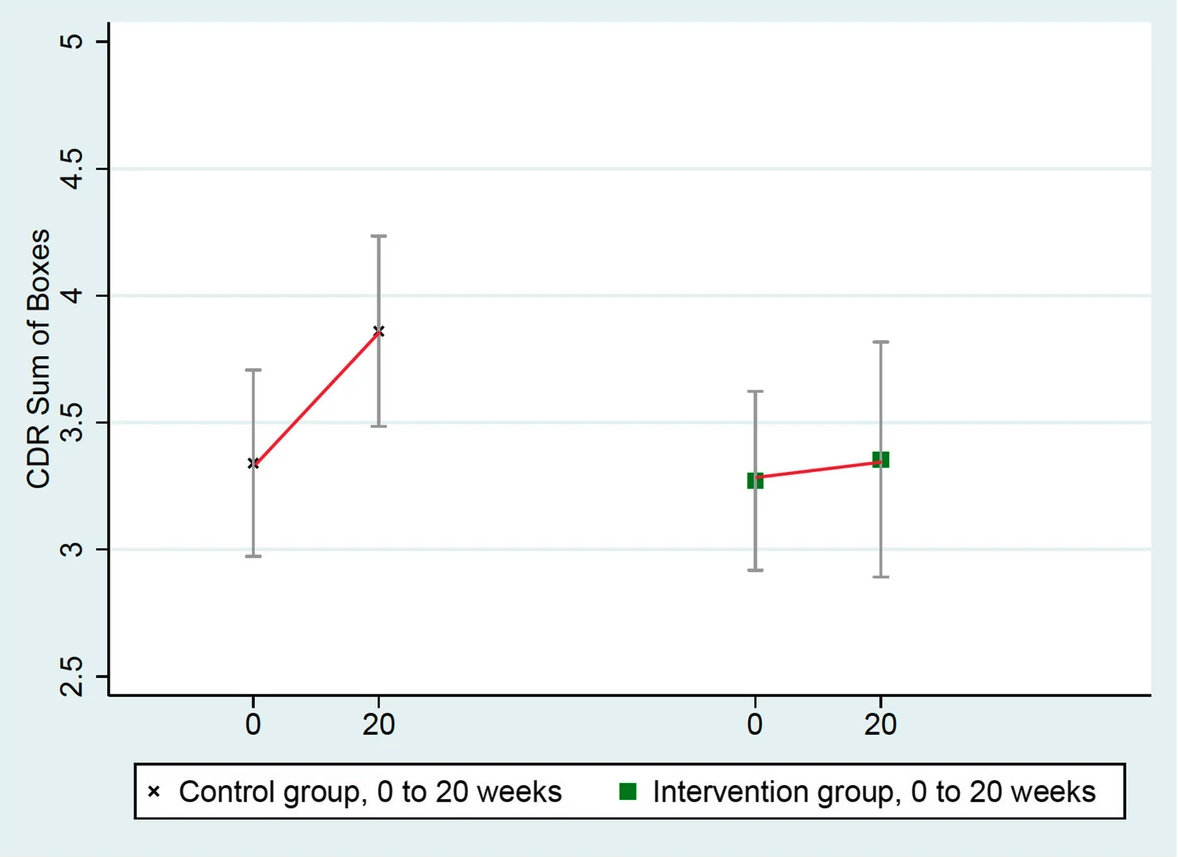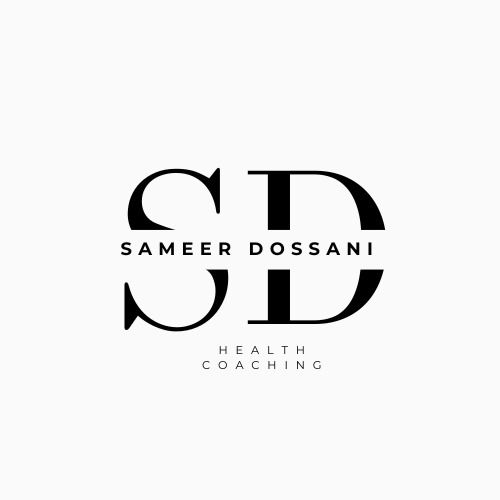Vegan for Alzheimer's - The Ornish Study
Jun 23, 2024
When I first went vegan in the mid 1990s, Dr. Dean Ornish’s Program for Reversing Heart Disease was one of the first books I was drawn to. I consider myself unfortunate. If Dr. Michael Greger’s books were available at that time I would have quit veganism much earlier. Unlike Dr. Greger, whose works are transparently nonsense, Dr. Ornish presented what appeared to be a valid case - or at least a persuasive case - for veganism. The case rested on his randomised controlled trials which tested a group given a vegan intervention against a control arm. At the time he had done a heart-disease trial which was interpreted to mean that veganism can improve or even reverse heart disease. When I left the vegan religion I discovered not only that the study didn't prove that but that it couldn't possibly have proved that because of its design.
The failings of that study match almost perfectly with the failings of a new study that Dr. Ornish has just published. This study claims to prove that a vegan diet can reverse Alhzeimer’s Disease. The methodology is similar to the earlier studies with some exceptions - in this case the people weren’t even strictly following a vegan diet. It’s worth going over this in some detail in order to understand how pro-vegan scientists can design studies which ostensibly prove their point and generate headlines, but are very far from proving anything about a vegan diet.
If ever you have the chance to look at a study designed by one of these pro-vegan scientists, always begin with the methodology section. The headlines are telling you about the vegan diet, but is that really the intervention? If so, is it the only intervention?
In this case the vegan diet was ostensibly an intervention (though not really, as we’ll get into below), but it was one of five interventions. The others were exercise, stress management (meditation), group support and supplements.
The supplements are interesting. The first supplement listed is named as “Omega-3 fatty acids with curcumin”. They even list a brand, Nordic Naturals. Now Nordic Naturals is a brand that I’m vaguely familiar with - I can recall buying Nordic Naturals fish oil for my father in Washington, DC. Fish oil in a vegan study? That didn’t sound right, so I looked it up. And sure enough this particular brand lists as its first ingredient “purified deep sea fish oil (from anchovies and sardines)”.


Now I would have no problem with this if the headline said “a vegan diet supplemented with fish oil and lifestyle interventions improved cognition in Alzheimer’s patients”. But that’s not what the headlines say.  They say, as this headline from USA Today illustrates, “a vegan diet”. There is no mention of the fact that the participants were taking supplements derived from fish. Many people are going to be reading these headlines and doubling down on their vegan diet - a diet that excludes anything derived from animals including fish oil - in the hopes that it might lower their risk of dementia. That's false advertising.
They say, as this headline from USA Today illustrates, “a vegan diet”. There is no mention of the fact that the participants were taking supplements derived from fish. Many people are going to be reading these headlines and doubling down on their vegan diet - a diet that excludes anything derived from animals including fish oil - in the hopes that it might lower their risk of dementia. That's false advertising.
OK, so it’s not a vegan intervention. But is the diet doing anything at all? If you wanted to answer that question, there’s a very clear way to do so. You would design the control arm to have all the other things - the supplements, the group support, the meditation, and the exercise. Ideally you might even have two control arms, one that gets all that stuff and no dietary change, and then a third that gets all of that stuff and a diet that’s actually known to improve cognition from other data sets - you could choose a ketogenic diet or even a Mediterranean diet depending on which set of data you find more persuasive. If you designed the trial that way, it would actually be a trial that could make conclusions about a vegan diet (or a vegan diet plus fish oil).
Unfortunately Dr. Ornish and his team did not design the trial that way. Like the heart health studies that preceded this study, Dr. Ornish gave the placebo group none of the interventions that the intervention group received. The paper describes the placebo arm as a “wait-list usual care control group”. In other words, the control group were just the usual patients getting the standard of care treatment for Alzheimer’s disease. The "wait-list" part is interesting, and a little unclear. Did these patients actually get the standard of care or were they on a waiting list for the whole time that the trial took place?
There are many problems with this approach. To give just one example, the group that was on the vegan diet also exercised - 30 minutes a day walking plus strength training three times per week. They weren’t just told to do that, they were given access to an exercise physiologist and a registered nurse to help them with adherence. Since most studies of this kind struggle with adherence without this kind of support, that's significant.
We know from other data sets that exercise on its own can slow the progression of Alzheimer’s. For example this study out of Denmark found a pretty decent effect size for moderate-to-high-intensity exercise for patients with Alzheimer’s disease.
This is the Ornish study results graph:

And this is the results table out of the Denmark study which used only exercise as an intervention:

Just eyeballing it (you can’t actually compare the studies because they use different metrics) the effect size looks comparable or maybe even bigger when compared to the effect size in the Ornish study. That raises the question, is the entirety of the effect size we see in the Ornish study attributable to exercise?
That’s a reasonable hypothesis. And it spawns many similar questions. Is the effect size attributable to group support? To meditation and yoga? To the fish oil supplement? To other supplements?
The study provides no insight into these questions because of how poorly designed it was and because the journalists who’ve reported on the study lack the curiosity and skepticism to point out that these are reasonable and unanswered questions.
Is it possible that the vegan diet did slow the progression of Alzheimer’s in these patients? While that possibility cannot be ruled out, based on the fact that vegan diets are known to be deficient in all sorts of things that the brain needs - vitamin A, amino acids like carnasine, and the omega 3s DHA and EPA that Ornish himself used as a supplement to the "vegan" diet - it’s pretty unlikely. It's much more likely that all of the benefits would have happened regardless of which diet they were on and that it's the other things that are making a difference.
So the question remains: What should a person who's interested in preventing or even reversing Alzheimer's disease be eating? According to my reading of the literature, the answer to that is pretty clear. There is a wealth of data on how ketogenic diets support good brain health including brain health as it relates to Alzheimer's disease. Is it conclusive? Well nothing's conclusive when it comes to science. But unlike a vegan approach this diet is rich in the things the brain seems to need - Dr. Ornish's fish oils among them - and low in the things known to impair brain function - carbohydrates and sugar.
Like anything else, the choice is up to you. I have little doubt that all of the things Dr. Ornish recommends - except for the diet - are hugely beneficial to cognitive function. If you want to improve your cognition and lower your chance of developing Alzheimer's it would be a great idea to exercise more, to do yoga, to meditate and to surround yourself with a supportive community.
If, in addition to that or as an alternative to that, you want to change your diet, the carbs should probably be the first thing to go. Based on the balance of data there's little reason to think that giving up meat and animal products does anything good for the brain. Those who want to make that case will need to do a better job designing their trials should they hope to convince anyone.
🌱 Ready to Find Your Path to Gut Freedom?
Stop trying to solve your Crohn's, Colitis, or IBD alone with conflicting advice. A personalized plan is the fastest way to clarity and relief.
On a free call, you’ll get:
✅ Clarity on your triggers – Identify the dietary and lifestyle factors uniquely impacting you.
✅ A tailored starting point – Get actionable steps to reduce inflammation and calm your gut.
✅ Real answers – Ask anything about your symptoms and healing (no topic is off-limits).
💬 “Working with Sameer gave me a clear path when I felt completely lost. This is the guidance I needed.” – Previous Client
Your personalized plan is a conversation away.

